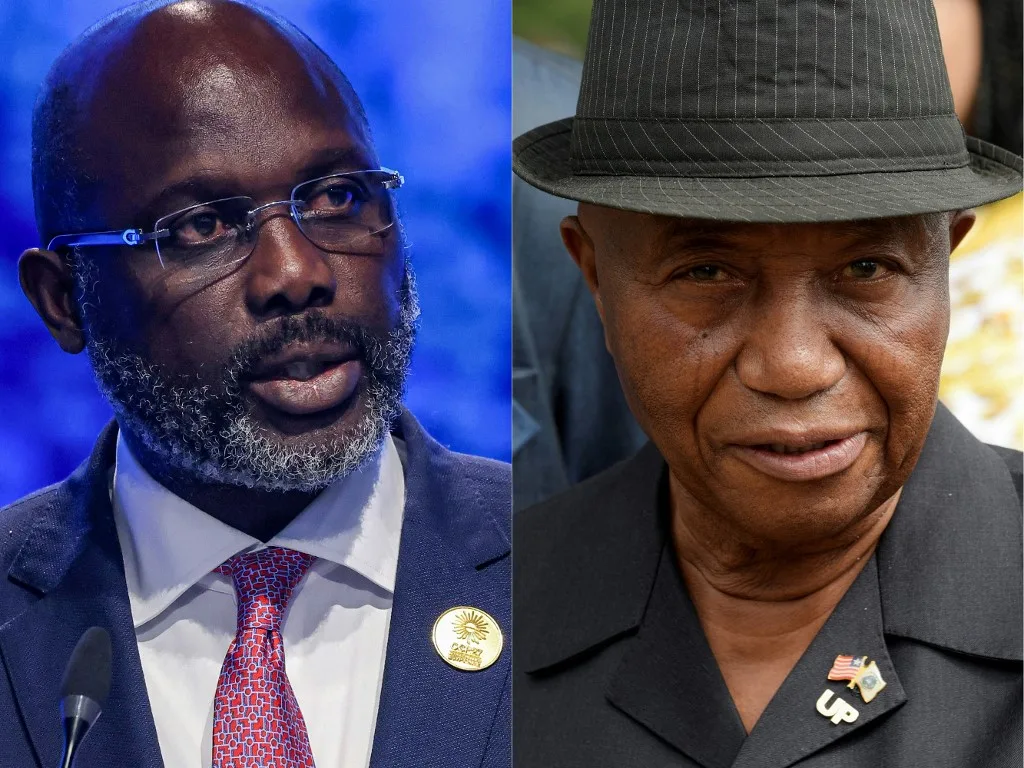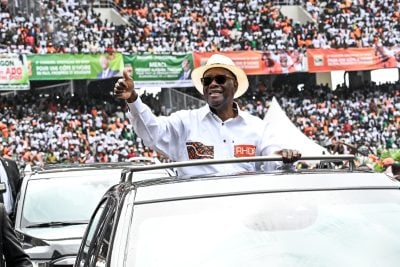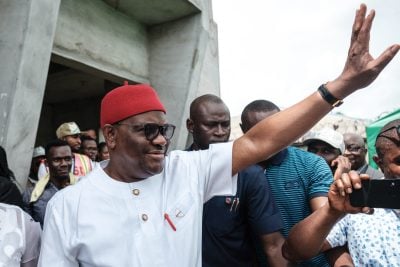George Weah’s remarkable second act as president of his country has drawn to a close after he conceded defeat to Joseph Boakai in Liberia’s tight presidential runoff election on 14 November. In truth, the former Ballon d’Or-winning footballer, best known for his glittering stints at Monaco, Paris Saint-Germain and AC Milan in the 1990s, has had a rather more mixed record in office.
Elected to replace the inspiring Nobel Peace Prize laureate Ellen Johnson Sirleaf in 2018, Weah’s term encompassed the global upheaval of Covid-19, an economic jolt that worsened living standards in the previously war-wracked country. While the external environment proved impossible to control, other reverses can be attributed to Weah’s decisions.
The president, perhaps used to enjoying international plaudits from his days on the pitch, made no apologies for his extensive foreign travel, spending almost 50 days away last year at conferences, summits, and, notoriously, the World Cup – to watch his son play for the United States. Meanwhile, the fight against corruption in Liberia stuttered, and little progress was made on pursuing justice for the victims of the country’s devastating civil war.
But however mixed Weah’s legacy in office, the manner of his exit has been exemplary.
According to data from the National Elections Commission, Boakai secured 50.89% of the vote to Weah’s 49.11%, with 99.58% of the results counted – a result tight enough to send many young democracies into an extended political crisis.
Departure with dignity
Instead, Weah sent his “heartfelt congratulations” to president-elect Boakai, his supporters, and his campaign team – and pledged to work with his successor in the interests of the nation. To his supporters, he recognised that the result was “not the outcome we desired,” but urged them to “follow my example and accept the results of the elections.”
Weah cautioned against the politics of division, which have proven so disastrous to Liberia’s recent history, and ended with a rousing tribute to “Mama Liberia”.
“As we transition to the new Boakai administration, we must be vigilant to the dangers of division and work together to find common ground. Now, more than ever, unity is paramount for the love of Mama Liberia. Tonight, the Coalition for Democratic Change has lost the election, but Liberia has won. This is a time for graciousness in defeat, a time to place our country above party, and patriotism above personal interest… Let us heal the divisions caused by the campaign and come together as One Nation and One United People.”
In a West Africa which has seen a dispiriting return to military coups in recent years, Weah’s full-throated defence of democracy and inclusive politics has all the force of a revolutionary act.
For all his goal-scoring prowess – as well as the unfortunate own-goals while in office – his gracious concession speech may prove one of the greatest gifts bestowed in his storied career.
Want to continue reading? Subscribe today.
You've read all your free articles for this month! Subscribe now to enjoy full access to our content.
Digital Monthly
£8.00 / month
Receive full unlimited access to our articles, opinions, podcasts and more.
Digital Yearly
£70.00 / year
Our best value offer - save £26 and gain access to all of our digital content for an entire year!

 Sign in with Google
Sign in with Google 



